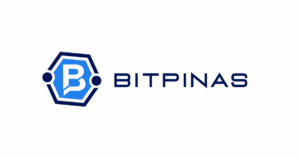Chinese Industry Group Alerts: Web3 & DeFi High-Returns May Be Ponzi Schemes

Chinese Regulators Warn Against Crypto Pyramid Schemes Disguised as Investment Opportunities
BIFA Issues Urgent Advisory to Retail Investors
On July 9, the Beijing Internet Finance Industry Association (BIFA) released a critical notice urging retail investors to be cautious of promotional materials that disguise traditional pyramid schemes using cryptocurrency language.
Local media reports indicate that promoters are now marketing “stablecoin wealth plans” and “Web 3.0 dividends,” among other offers, which claim to provide guaranteed returns.
The advisory outlined five key indicators of illegal fundraising activities: operating without proper licensing, employing complex jargon to exploit knowledge gaps, making false promises, using new investments to pay earlier participants, and engaging in fraudulent or money-laundering activities.
BIFA recommended that the public confirm a company’s licensing status through official national regulatory bodies and cautioned that high returns typically come with significant risks.
Additionally, the notice reminded potential victims that under China’s regulations regarding illegal fundraising, investors may be held accountable for any financial losses incurred. The warning, which contains nearly 1,500 Chinese characters, was first shared on BIFA’s verified WeChat account.
Historical Context of Fraud in the Crypto Space
The collapse of PlusToken in 2019 serves as a stark reminder of the risks involved in cryptocurrency investments. This wallet service amassed around 200,000 Bitcoin (BTC) and 9 million Ethereum (ETH), valued at over $4 billion at 2020 prices, marking it as one of the largest Ponzi schemes utilizing crypto terminology.
This incident illustrated how fraudsters can transfer cryptocurrencies across various exchanges and mixers before cashing out, complicating enforcement efforts that can last for years.
Despite China’s ban on direct crypto-to-fiat exchanges in 2021, interest in cryptocurrencies remains strong, with many investors turning to offshore platforms and grey-market options.
Regulatory bodies in major cities like Beijing, Shanghai, and Shenzhen have each issued consumer alerts regarding token-related scams this year.
Reasons Behind the Recent Warning
Retail speculation has surged on social media platforms in mainland China, where an unofficial index tracking “stablecoin concepts” has seen an impressive 88% increase since April, according to reports from Reuters.
Market activity has also been influenced by Hong Kong’s upcoming stablecoin regulations, set to take effect on August 1, as major tech companies explore the potential of renminbi-pegged tokens.
Additionally, reports indicate that local blogs are promoting “USDT mining pools” and “insured CNH stablecoins,” prompting regulators to prepare for enforcement actions against these schemes.
BIFA concluded its statement by providing a hotline for reporting unlicensed activities and encouraging investors to alert law enforcement or financial authorities if they encounter suspicious operations.
The association also pledged to forward credible reports to provincial task forces dedicated to tracking illegal public fundraising activities.
This article originally appeared on CryptoSlate.







